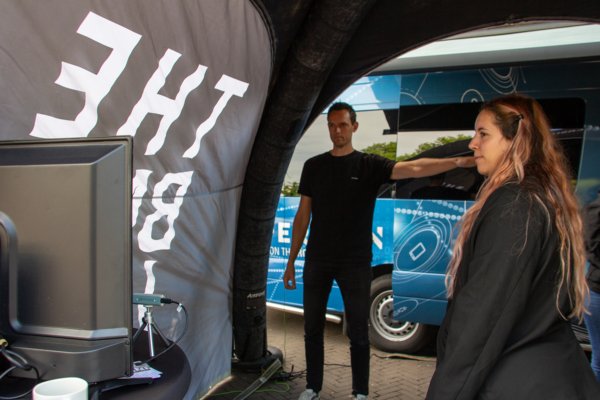In citizen science, citizens and researchers join forces to make a positive societal impact. Part of the University of Twente’s mission is to strengthen society by providing sustainable solutions to current problems. To this end, scientists and students collaborate with citizens, civil society organisations, governments and companies.
What is Citizen Science?
Citizen science is a type of science where citizens and civil society organisations are actively involved in research themes that are relevant to them. These may include good health, sustainable energy, and a safe and accessible digital world. Citizen science aims to bring about improvement for individual citizens and for society as a whole, both in the Twente region and beyond.
Citizen Science at the University of Twente
The University of Twente is an entrepreneurial university of technology that puts people first. UT wishes to strengthen society through good and relevant scientific research. This is done in an open and transparent manner, actively involving citizens and social partners. The University of Twente aims to increase the impact of its research and education by taking on concrete social challenges and coming up with solutions. In so doing, it focuses on three themes: good healthcare, energy transition and safe digitalisation. For Citizen Science a Citizen Science Hub Twente was was established at DesignLab.
For more information about the University of Twente’s mission, click here
CITIZEN SCIENCE AT Designlab
DesignLab has been working on citizen science for years. Whether this was connecting citizens to researchers, or facilitating a working space for research, or simply thinking alongside of society. DesignLab has also worked on and continues to work on projects that focus on citizen science.
Larger Positive Impact
The opportunities offered by citizen science, alongside regular science, are significant. So-called ‘transdisciplinary collaboration’ makes a valuable contribution to academic research, as scientists from different fields, citizens and organisations all have their own knowledge, experiences and ideas that may benefit the final result.
Citizen science is as transparent and open as possible. It is also closely linked to open science in that knowledge, experiences and outcomes are shared to enable maximum accessibility and use. This does not only enhance the impact, but could also reinforce society’s trust in science.
Contributing Actions or Ideas
Citizen science is constantly developing. It can take on many forms. Citizens might gather data for scientists to use, for example on air quality in the neighbourhood or the number of birds in the city. This type of data allows researchers to take stock of a certain situation and make suggestions to improve it.
Citizen science also involves people, as well as civil society organisations, in the early research design stage. As such, they may play a part in determining research questions and methods. Examples include patients sharing their experiences with their diseases or environmental organisations contributing their superior knowledge of how nature is doing at the local level. Citizens and civil society organisations often have more knowledge than researchers may realise.
UT Projects
Citizen science adds an extra dimension by starting the scientific process with identifying real-life issues that our communities, people and social organizations face. From the start, the focus is on positive social impact. These are some projects we have been developing since 2021.
The content on this page is also available in Dutch. If you have any questions about our Citizen Science projects, please contact: citizen-science@utwente.nl

